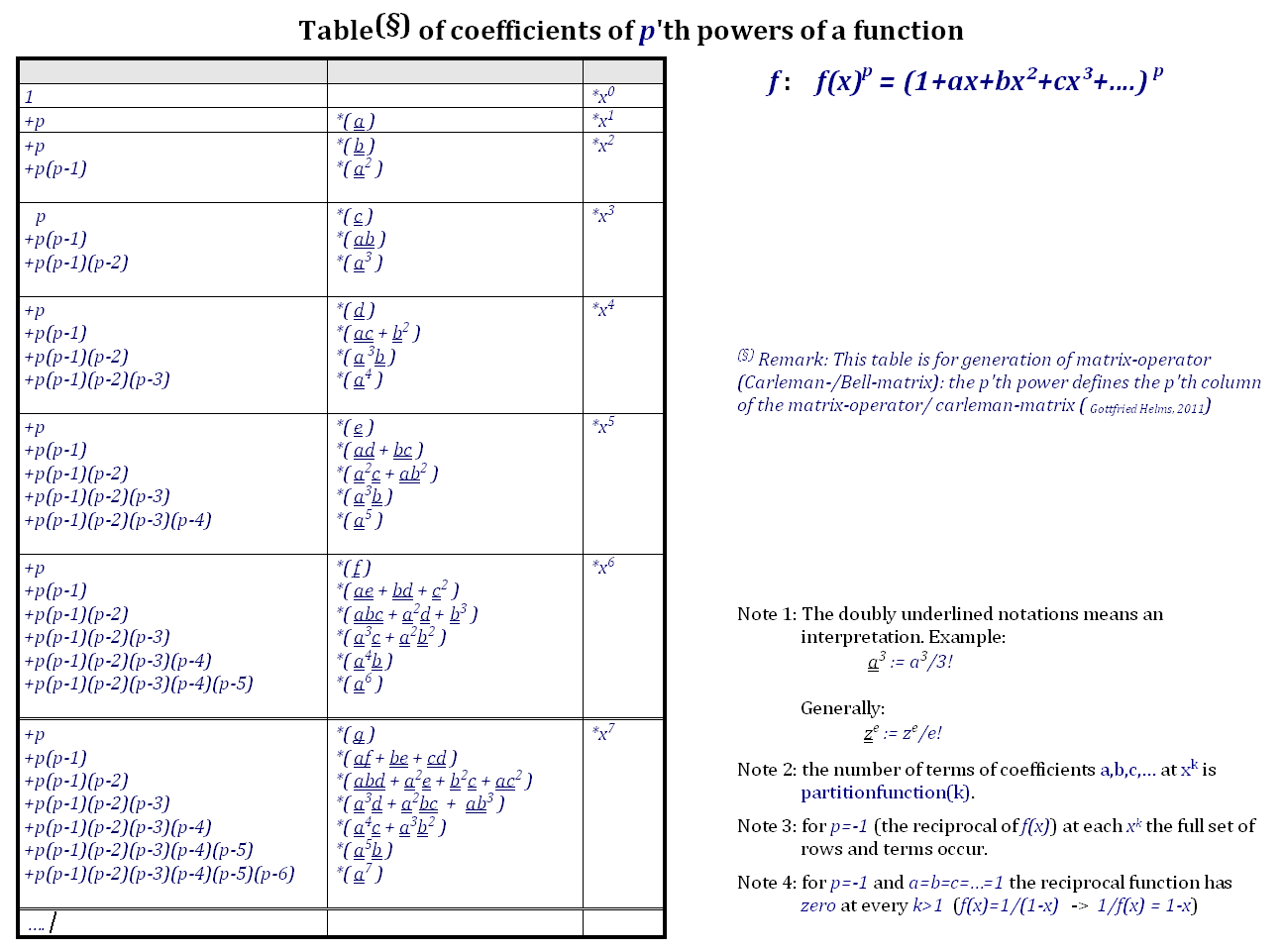[update] remark: I shifted the original answer to the bottom although it was missing the question to keep it as reference.
I've done a nice table, which shows the coefficients of a powerseries with constant term =1; for any p 'th integer power of the function you insert p into the formula.
Unfortunately the Latex-notation of the table was too messy, so I insert it as an image here:
table http://go.helms-net.de/math/images/mo_110724_decofun.png
(source: helms-net.de)
If you have Pari/GP you can easily manipulate power series; the formula $ \small P \cdot (1 - P)^{-1}$, where P is defined to be a powerseries can directly be evaluated :
P = Ser( sum(k=0,20, (-1)^k*k! * x * x^k ))
print ( P*(1 - P)^-1 + O(x^16) )
The matrix-operator is simply the coefficients of each power of the taylor series of a function in a column of an (ideally infinite sized) matrix.
[original answer] Assumed that I got your function correct ( $ \small P(x) = \sum_{k=1}^{\infty} (-1)^{k-1} \cdot (k-1)! \cdot x^k $ ) I have polynomials for the coefficients of $ \small P^{\text{ o } h} (x) $ Here I assume, that your notation $ \small P^n$ means iteration and not power. (If that was wrong I can delete this answer) I constructed the matrix-logarithm of the matrix-operator $ \small M$ for the function $ \small P(x)$ and got by $ \small \exp(h \cdot \log(M)) $ the following powerseries, where the coefficients at *x* are polynomials in the iteration-parameter *h* :
$ \qquad \small \begin{array} {l} P^{\text{ o } h} (x) = & 1 \cdot x \\\ & - h \cdot x^2 \\\ & + (h^2 + h) \cdot x^3 \\\ & + (-h^3 - 5/2 \cdot h^2 - 5/2 \cdot h) \cdot x^4 \\\ & + ( h^4 + 13/3 \cdot h^3 + 9 \cdot h^2 + 29/3 \cdot h) \cdot x^5 \\\ & + (-h^5 - 77/12 \cdot h^4 - 125/6 \cdot h^3 - 511/12 \cdot h^2 - 295/6 \cdot h) \cdot x^6 \\\ & + O(x^8) \end{array} $
I was not yet able to construct the other function $ \small P_T(C)$ although I've tried with a certain vague idea; please show some of the coefficents $ \small b_n $ so that I can compare.
